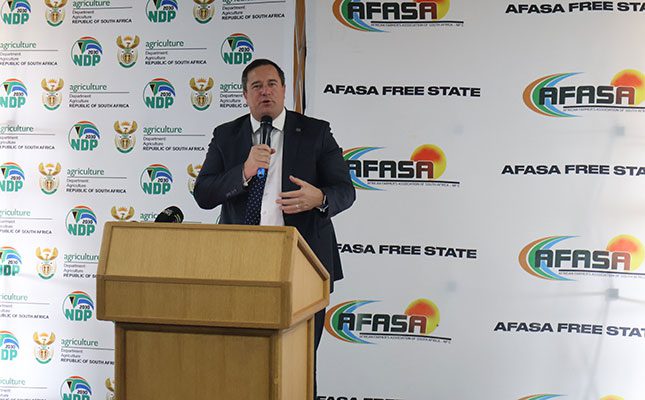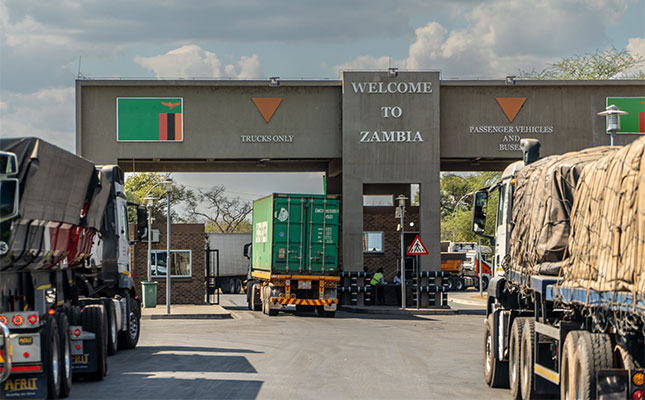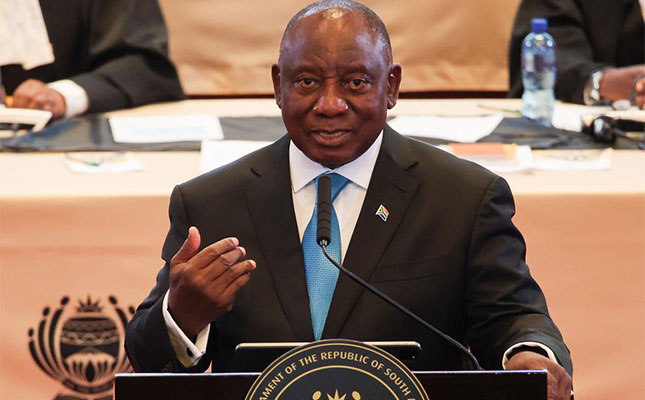
Steenhuisen made the announcement at the African Farmers Association of South Africa’s Leadership and Partnership Conference, held on 26 November at the Agricultural Research Council’s (ARC) Roodeplaat Campus in Pretoria, Gauteng.
He acknowledged the unprecedented challenges farmers across the country are enduring as a result of what he called “one of the most persistent and damaging waves of foot-and-mouth disease [FMD]”, which has been ongoing since 2019.
“The Department of Agriculture and [I] hear your cries, hear your pleas, and we hear your frustration, particularly those small-scale farmers who rely on the sale of their cattle to fund school fees and other household expenses.
“We hear the cries of the dairy farmers in KwaZulu-Natal [KZN] who have suffered losses, movement restrictions, and severe disruptions to their livelihoods, particularly in districts such as Kokstad, Dundee, Underberg, and Dannhauser, where new [FMD] cases continue to emerge,” Steenhuisen said during the conference.
He added that while important progress has been made, the current trajectory is not acceptable.
“We must be honest as a sector that this is a battle we are currently not winning. For this reason, we are now massively strengthening our approach to regain control of the situation.
“The Ministry of Agriculture has made a policy change, and we will be moving to vaccinate the entire national herd in South Africa. This is going to be absolutely essential if we are to get on top of the disease.
“This strategy aims to vaccinate South Africa’s national herd systematically, beginning with the hardest-hit provinces – namely KwaZulu-Natal, Gauteng, the Free State, Mpumalanga, and North West – which will submit their livestock numbers and number of quarantined farms. This plan, however, will rely on a consistent, high-quality vaccine supply,” he explained.
Steenhuisen also announced that by February 2026, his department expects to receive two million vaccine doses across two consignments, while a new mid-scale local vaccine production facility is being fast-tracked to cut reliance on imports.
“The aim is that between government and industry, an additional 1,5 million doses will be made available,” he added.
The national herd vaccination strategy will also allow South Africa to apply to the World Organisation for Animal Health for “freedom with vaccination” status once it has reached sufficient scale, he said.
Current situation and support measures
Steenhuisen noted that KZN remains the epicentre of the disease, with 180 of the country’s 274 unresolved outbreaks, and although 931 200 animals had been vaccinated in the past three months, uncontrolled animal movement continues to undermine containment efforts.
He thanked the Milk Producers’ Organisation for its purchase of 50 000 vaccine doses for rollout to dairy farmers across the province.
Thousands of doses have already been delivered to farms across Bergville (3 000 doses), Estcourt (2 500), Winterton (1 500, with 3 000 to follow), Dundee (4 000 from government stocks), and the Spioenkop Dam area (5 000 from government stocks).
He added that the department is working closely with Onderstepoort Biological Products, the ARC, and international partners, including China and Argentina, who have already offered technical cooperation and support regarding vaccine provision.
Nonetheless, Steenhuisen warned that vaccination alone will not solve the problem as “uncontrolled movement of animals remains the single biggest threat to the national containment efforts”.
Industry response and next steps
Speaking to Farmer’s Weekly, Red Meat Industry Services (RMIS) CEO Dewald Olivier said the organisation has welcomed the policy shift.
“This will help a lot, because everybody has been pulling in different directions about what needs to happen. Now there is a clear direction to vaccinate the entire country. From here, it will be much easier to create a plan on how to do it,” he said.
He added that it is very important to start the vaccination rollout where the disease “hurts the most”.
“Feedlots and dairies will get vaccines they have purchased, and the new vaccines coming in will be focused on those areas where the outbreaks are the worst, such as KZN. We need to vaccinate there as soon as possible so that we can utilise those cattle that are vaccinated to get into the value chain, and then we will roll out.
“There must be a plan for where and how to vaccinate so it has the greatest impact. This is what we have been waiting for. RMIS has worked closely with government on this, and while it remains a government-managed disease, we support the decision.
“From now on, traceability is crucial. It is the cornerstone of vaccination, ensuring cattle aren’t vaccinated twice, for example, and then everybody can use their cattle once vaccinated,” Olivier said.
Commenting in the media on Steenhuisen’s announcement, Agbiz chief economist Wandile Sihlobo said: “We have a national herd of around 7,2 million cattle. This means vaccinating all these cattle will be a massive undertaking. Still, this decision is courageous, as it ensures that South Africa protects its cattle herd and can continue its focus on red meat exports.”
He explained that the main challenges now will be managing the logistics of the vaccination programme and re-engaging the country’s export markets affected by the outbreak.
In a statement, the Red Meat Producers’ Organisation (RPO) said the announcement brought long-awaited relief to an industry that has been battling severe economic fallout.
RPO CEO Dr Frikkie Maré said that while the disease itself poses a limited clinical threat under extensive farming conditions, the financial strain on producers has been devastating.
“The biggest issue with FMD for primary extensive livestock producers is not the disease itself but the economic consequences associated with it,” he explained.
He added that current restrictions have effectively shut weaner producers out of normal markets.
“Producers can no longer participate in normal market channels once their herds are vaccinated, as animals can only go for direct slaughter. This poses a major problem, as the lion’s share of South African cattle producers operate cow-calf systems, which means they must sell weaned calves, a commodity with no market, in the case of FMD,” he explained.
He added that FMD has a significant impact on the rest of the red meat value chain, too, because feedlots must remain under quarantine for extended periods, which creates market bottlenecks and causes price disruptions.
Maré said the new national vaccination policy has finally opened a path to restoring stability in the industry.
“With the announcement, we can now follow a progressive pathway in terms of vaccination, and in our view, it is the first tangible step in the right direction. This action plan means weaner producers will regain market access, feedlots will resume operations, and we can return to a normal flow of products in the red meat value chain,” he said.
@farmersweeklysa News just in! Minister of Agriculture John Steenhuisen has announced that the department has made a policy change to vaccinate the entire national herd. He said that this is essential to contain the virus. #FarmersWeeklySA #agriculturetiktok #footandmouthdisease #livestockdisease ♬ original sound – Farmer’s Weekly SA
Get trusted farming news from Farmers Weekly in Google Top Stories.
➕ Add Farmers Weekly to Google ✔ Takes 10 seconds · ✔ Remove anytime






